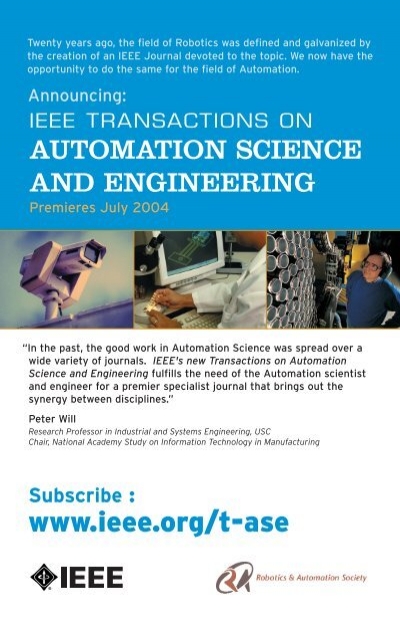深度强化学习辅助鲁棒Cubature Kalman滤波用于多速率测量的电力系统动态估计
IF 6.4
2区 计算机科学
Q1 AUTOMATION & CONTROL SYSTEMS
IEEE Transactions on Automation Science and Engineering
Pub Date : 2025-04-11
DOI:10.1109/TASE.2025.3560081
引用次数: 0
摘要
高频相量测量单元(pmu)与传统SCADA系统共存,对异构源和多速率测量提出了挑战,严重降低了电力系统动态估计的性能。在这项工作中,提出了一种深度强化学习(DRL)辅助鲁棒cubature Kalman滤波(CKF)方案来处理来自混合源和不同时间尺度的测量。具体而言,设计了一种具有独立离散化机制的多速率测量函数重构方法,以克服目前大多数现有工作中需要多个源采样率的整数倍关系的局限性。基于这种离散化机制,提出了一种深度强化学习辅助的双参数线性指数平滑方法来重建具有在线可调估计参数的慢速测量模型。鲁棒CKF中还引入了广义熵损失准则,以对抗非高斯噪声和重构引起的噪声分布变化。对比结果表明,本文提出的基于drl的鲁棒CKF方法在各种操作场景下都具有更好的精度和鲁棒性。从业人员须知:本工作旨在改进电力系统控制中心中电力系统状态估计函数的性能。大多数电力系统状态估计方法处理具有相同采样率和/或具有多个采样率关系的测量。然而,在电力系统实际应用中,PMU和SCADA同时存在,其采样率可能不呈倍数关系。本文提出了一种嵌入多速率采样积分机制的深度强化学习辅助鲁棒培养卡尔曼滤波器。在负荷突变、可再生发电等电力系统时变运行条件下,能够获得较好的估计精度。该方法可以集成到电力系统控制中心现有的图形用户界面中,其中也存在状态估计。深度强化学习可能会增加电力公司对控制中心计算能力的需求,而控制中心的计算能力已经在不断升级。本文章由计算机程序翻译,如有差异,请以英文原文为准。
Deep Reinforcement Learning-Assisted Robust Cubature Kalman Filter for Power System Dynamic State Estimation With Multi-Rate Measurements
The coexistence of high-frequency phasor measurement units (PMUs) and conventional SCADA systems raises the challenge of heterogenous-source and multi-rate measurements which significantly degrades the performance of power system dynamic state estimation. In this work, a deep reinforcement learning (DRL) assisted robust cubature Kalman filtering (CKF) scheme is proposed to handle measurements from hybrid sources and with different time scales. In specific, a multi-rate measurement function reconstruction approach is designed with an independent discretization mechanism to lift the present limitation of requiring an integer multiple relationship of the sampling rates from multiple sources in most of existing works. Embedded with this discretization mechanism, a deep reinforcement learning assisted two-parameter linear exponential smoothing method is proposed to reconstruct the slow measurement model with online adjustable estimation parameters. A generalized correntropy loss criterion is also included in the robust CKF to counter the non-Gaussian noise and the noise distribution variation caused by the reconstruction. Comparisons results demonstrate that the proposed DRL-based robust CKF method can achieve better accuracy and robustness under various operating scenarios. Note to Practitioners—This work aims to improve the performance of the power system state estimation function in power system control center. Most of the power system state estimation approaches handle measurements with same sampling rates and/or with a multiple relationships of sampling rates. However, in power system practice, PMU and SCADA units exist simultaneously and their sampling rates may be not with a multiple relationship. This work proposes a deep reinforcement learning assisted robust cubature Kalman filter embedded with a multi-rate sampling integration mechanism. It will be able to achieve better estimation accuracy under time-varying operation conditions in power systems such as sudden shifts of load and renewable generations. The method can be integrated into the existing GUI in power system control center where the state estimation also exists. The deep reinforcement learning may increase the need of computing capability of control center which has been upgrading by most of power utilities.
求助全文
通过发布文献求助,成功后即可免费获取论文全文。
去求助
来源期刊

IEEE Transactions on Automation Science and Engineering
工程技术-自动化与控制系统
CiteScore
12.50
自引率
14.30%
发文量
404
审稿时长
3.0 months
期刊介绍:
The IEEE Transactions on Automation Science and Engineering (T-ASE) publishes fundamental papers on Automation, emphasizing scientific results that advance efficiency, quality, productivity, and reliability. T-ASE encourages interdisciplinary approaches from computer science, control systems, electrical engineering, mathematics, mechanical engineering, operations research, and other fields. T-ASE welcomes results relevant to industries such as agriculture, biotechnology, healthcare, home automation, maintenance, manufacturing, pharmaceuticals, retail, security, service, supply chains, and transportation. T-ASE addresses a research community willing to integrate knowledge across disciplines and industries. For this purpose, each paper includes a Note to Practitioners that summarizes how its results can be applied or how they might be extended to apply in practice.
 求助内容:
求助内容: 应助结果提醒方式:
应助结果提醒方式:


